After the baby is born and you’re back at home sinking into the new routine of motherhood, the last person you seem to take care of is yourself - and you are one of the most important people you need to care for!
Mamas require good care, mentally and physically, to do the best for those under their care. The first few hours after labor through the six to eight weeks following, your body is experiencing the postpartum period. Emotionally and physically, the body undergoes changes brought on by childbirth and becoming a parent. This is the time your body needs to re-group, re-energize, and rebuild for the nurturing life of motherhood. It typically takes six weeks (or up to twelve) for physical healing, and during those weeks you can expect a variety of changes. Knowing that all these fluctuations are taking place can help you recognize the emotional and physical highs and lows you may experience as your body adjusts.
These changes include:
- Hormones – Estrogen and progesterone levels will have decreased after labor and delivery.
- Oxytocin will increase (especially during breastfeeding) for bonding and parental instinct.
- Prolactin will signal milk production for breastfeeding mom
- Baby Blues – All sorts of emotions arise while you and baby settle into a pattern of eating, sleeping, and bonding. It’s common to feel sadness, irritability, tiredness, and even anxiety while also experiencing the joy and wonder of this sweet newborn in your household. Mood swings are common in the early days and weeks after delivery. Baby blues typically diminish within two weeks. During these weeks, take good care of yourself when you can, give yourself some grace – nobody is perfect! Be sure to talk to your loved ones about how you’re feeling so you can get the support you need when you feel overwhelmed. If baby blues persist for more than two weeks or if symptoms worsen, please be sure to discuss this with your physician as you may be experiencing postpartum depression.
- Bleeding and Discharge – Bleeding and discharge are normal after delivery and may seem heavy early on. Both should decrease and become lighter as time goes on, usually anywhere from 4-6 weeks. Cramps or contractions after birth may be uncomfortable at times but they do help reduce uterine bleeding and help shrink your uterus back to its usual size.
- Breastfeeding moms may notice contractions during feedings because the body is releasing oxytocin. Common pain relievers for cramps include warm baths/showers, or Ibuprofen or Tylenol taken according to the recommended dosage (or according to your physician). It’s good to know that these things are normal, however, if you are bleeding enough to soak through one pad an hour for more than two hours, please call your care provider. Ongoing clots could be a signal that your uterus is having trouble getting back to pre-pregnancy size, or it could simply be that you’ve been overdoing it physically. It’s always a good idea to notify your care provider when noticing unusual bleeding to keep you as healthy as possible during your recovery.
- Breast Soreness – Tightness and soreness of breasts will be noticeable as your milk supply begins to come. Breasts may become engorged, feel tender, firm, or swollen. This should wear off whether or not you breastfeed. Breast-feeding moms may notice between feedings that breasts feel heavy or tender as your baby’s next feeding is due. Also, your nipples may be particularly sensitive, and you might experience occasional pain until your baby forms a good latch.
- Natural remedies for sore breasts include warm compresses, showers and cold cabbage leaves. A little discomfort is normal, but constant pain while breastfeeding is not. A lactation consultant can be a great resource if you’re experiencing pain and discomfort from latching difficulties.
There are a great many other symptoms you may feel as you recover from delivery or a C-section that you can discuss with your care provider.
Two major ways to help yourself in the recovery process are rest and nutrition.
- Rest – It’s tricky and sometimes difficult to find time to rest, but rest is especially needed. Babies come with their own schedule, and both of you are acclimating to functioning in a reality of reduced sleep, disrupted sleep patterns, and a recovering body after labor. A few ideas to help maximize times of rest include:
- Sleep when the baby sleeps. Even a few minutes can help replenish and revive an exhausted parent.
- Ask for help, accept the help. If a family member or close friend can assist with anything, consider accepting that invitation and allow yourself to relax. Perhaps they can vacuum, make a meal, rock the baby, or just allow you to take a long nap. There are people in your life who have been in your shoes and would love to pay forward the tenderness they once received.
- Remember that saying “no” is ok. If you aren’t up to entertaining visitors, it’s okay to ask if they could reschedule at a time when you’ll be in a better frame of mind.
- Get fresh air and sunshine when you can. It helps clear the cobwebs and refreshes you. A quick walk with baby in the stroller could allow you both to rest better later in the day.
- Keep needed items close. Especially if you’re recovering from a C-section or difficult birth, keeping diapers, wipes, drinking water, and a few snacks nearby could save you from constantly getting up.
- Nutrition - Replenishing your calories and hydration is important after labor and for nursing mothers. Finding time to shop, prep food, cook, and even eat can be challenging with a newborn. Keeping it simple is key.
- Try to eat when you’re hungry (or when baby eats) by having nutritious snacks on hand like nuts, fruit and raw vegetables. Hand-held snacks and a water bottle make it easier to eat and drink while you’re feeding baby.
- A helpful app, MyPlate, offers guidelines for healthy eating that includes choices from all the recommended food groups and can provide you with information about the right number of calories and nutrients a new mom needs. You can also talk with your physician or a certified lactation consultant about good nutrition during postpartum and while breastfeeding.
The PLC Health Clinic is here to assist you also. We have classes to inform pregnant moms about what to expect during pregnancy, labor and postpartum. Our classes are for any expectant mother and any mother with a child up to the age of two. The classes also offer the added benefit of earning while you learn – allowing you to utilize our Baby Boutique for much-needed baby items such as diapers, wipes, hygiene items and baby clothes.
Contact us during business hours to schedule an appointment at 419.238.9177 or online at www.plchealthclinic.org.
*Resources available upon request

